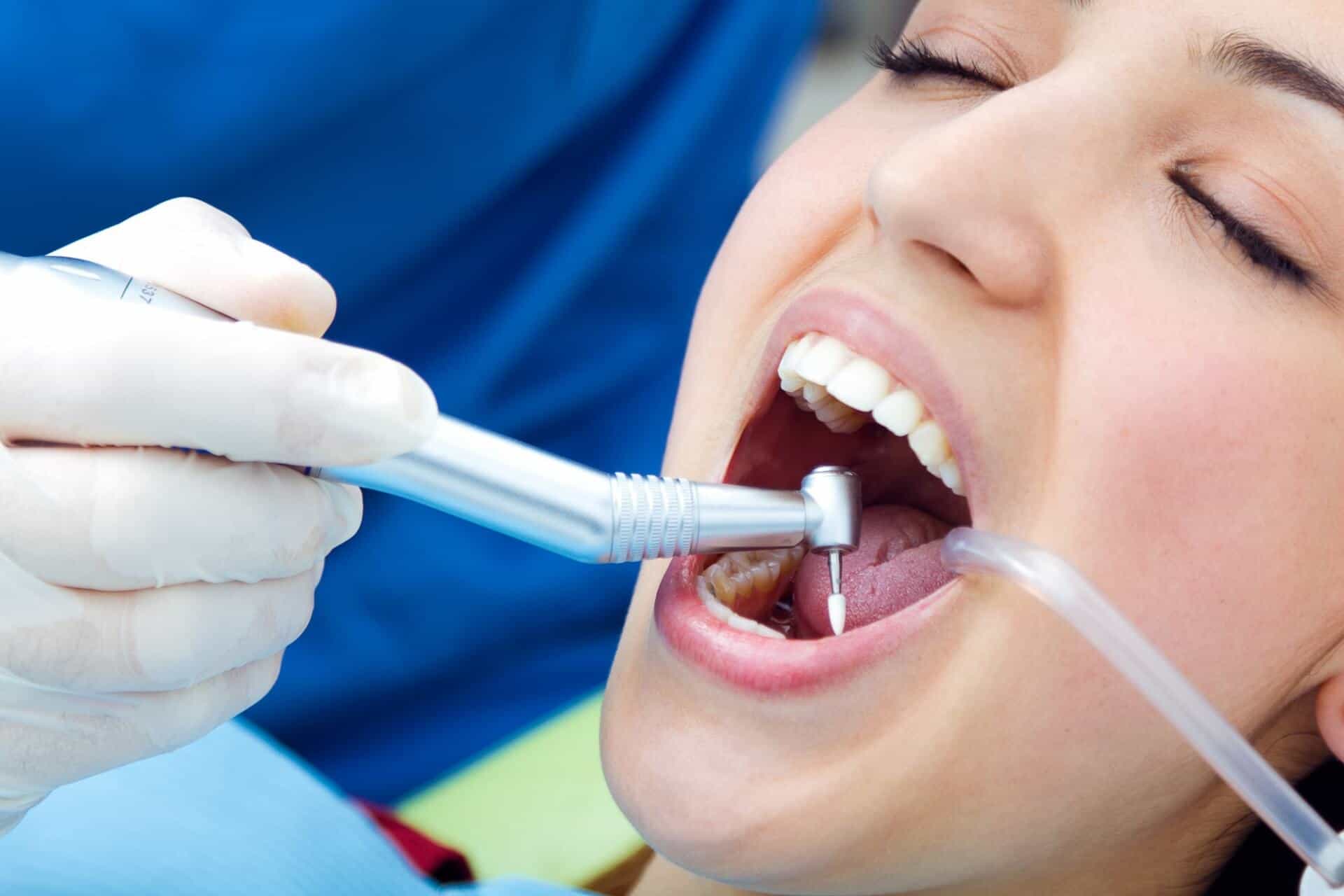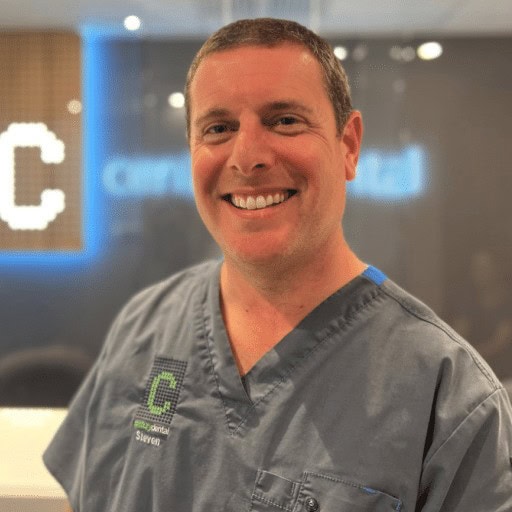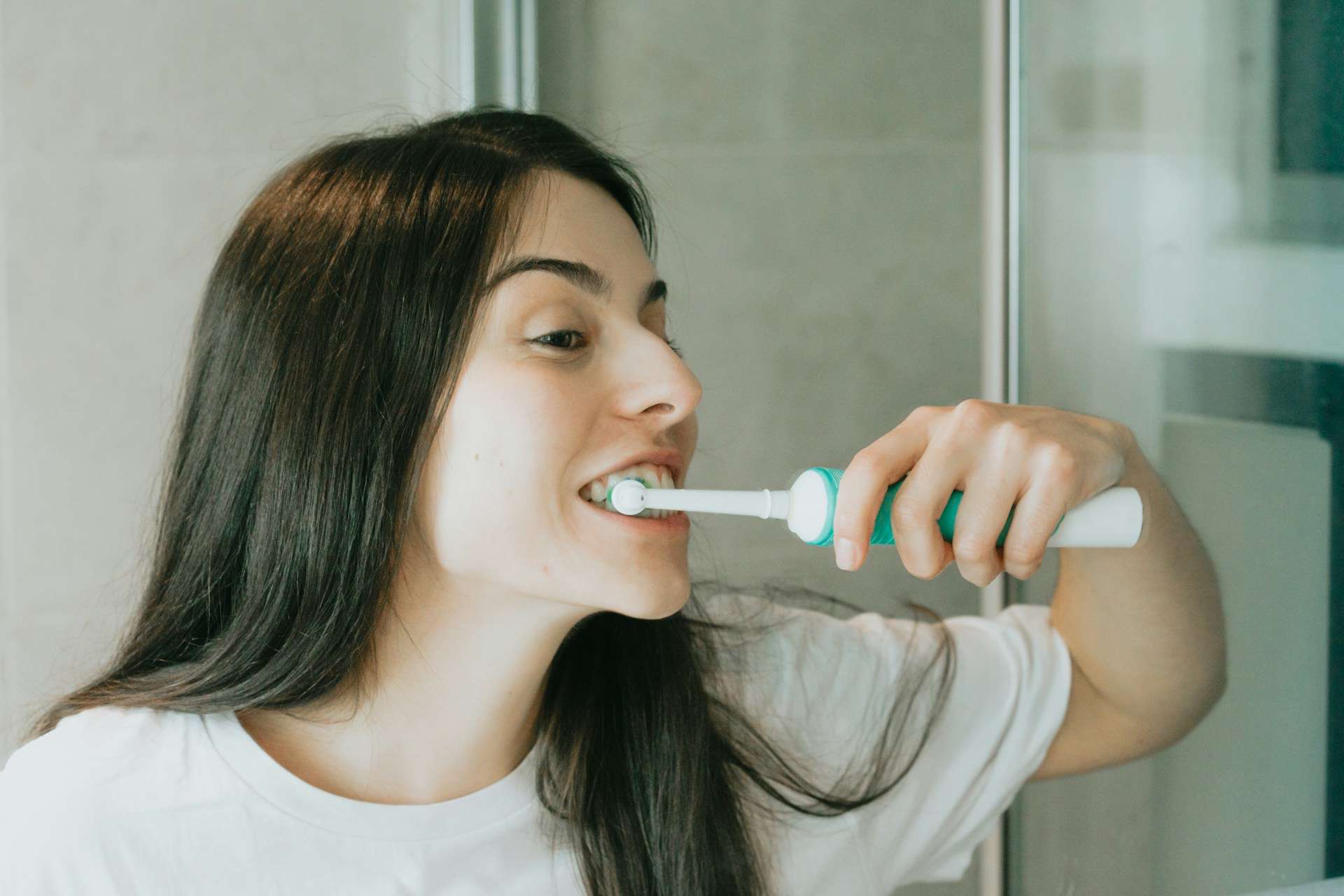A dental cleaning is a professional teeth cleaning of your teeth done by a dentist or dental hygienist. It’s much more thorough than regular brushing and flossing at home.
Regular dental cleanings are important because they:
- Remove plaque and tartar buildup that your toothbrush can’t get rid of
- Help prevent cavities, gum disease, and tooth decay
- Keep your breath fresher
- Allow the dentist to check for any dental problems early so you can prevent more serious dental procedures
- Help maintain overall health, as poor oral health can affect the rest of your body
Even if you’re diligent about brushing and flossing at home, tartar still builds up over time and needs professional attention. Most patients find cleanings quick and comfortable, and they’re absolutely essential for keeping your smile healthy for years to come.
How Long Does a Dental Cleaning Take?
If you’re keeping up with regular visits, expect to be in and out in about 30-40 minutes for a standard cleaning. Your time in the chair really depends on how much buildup has accumulated since we saw you last.
For patients needing a deep teeth cleaning (what we call scaling and root planing), Dr. Rostkier’s team typically spends about 45-60 minutes on each quarter of your mouth. We usually split this treatment into two visits for your comfort. Don’t worry about discomfort – we offer numbing options to keep you comfortable throughout the process.
Types of Dental Cleanings
Not all cleanings are created equal, and we tailor our approach to what your mouth needs. For most patients with good oral habits, a standard cleaning does the trick. But if it’s been a while since your last visit or if we spot signs of gum disease, you might need what we call a deep cleaning. Deep cleaning targets the spaces below your gumline where harmful bacteria hide. Regular visits usually mean simpler cleanings and healthier gums.
The Dental Cleaning Process
During your cleaning, we start with a thorough dental checkup. Your hygienist examines your gums for inflammation, recession, and other concerns.
Next, we remove plaque and tartar. Ultrasonic scalers loosen buildup with vibration and water spray, while hand instruments clean more precisely, especially below the gumline. This step also removes hard to reach bacteria that causes inflammation and disease.
After scaling, we polish your teeth with a mildly abrasive toothpaste and a soft rubber cup. This removes stains and smooths the surface, making it harder for bacteria to cling. We then floss to clear any remaining debris and check for areas needing extra care at home. Most cleanings finish with a fluoride treatment—foam, gel, or varnish—to strengthen your enamel against decay.
At every step, we look for early signs of problems so we can address them before they require more extensive treatment.
Factors That Affect Dental Cleaning Time
Several things influence how long you’ll spend in our chair. The main factor is simply how much buildup has accumulated on your teeth since your last visit. If you’re showing signs of gum disease, we’ll need to be more thorough, which takes additional time. Some patients also prefer a slower pace if they’re feeling anxious, and we’re happy to accommodate that. We’d rather take our time and do a thorough job than rush through your treatment.
Preparing for a Dental Cleaning Appointment
To make your visit go smoothly, try to arrive about 10 minutes early to handle any paperwork updates. Bring a list of any medications you’re taking and jot down any changes in your dental health you’ve noticed. Don’t be shy about mentioning concerns – whether it’s sensitivity in a particular tooth or anxiety about the cleaning process. Taking a few deep breaths before we start can help you relax, and many patients find it helpful to bring earbuds to listen to something calming during their cleaning.
After the Dental Cleaning
Once we’re done, you can generally get right back to your normal routine. If you’ve had a fluoride treatment, we’ll ask you to hold off on eating or drinking for about 30 minutes to let it fully absorb. Your teeth might feel extra smooth – that’s a good thing! Between visits, consistent brushing and flossing makes a huge difference in how quick and comfortable your next cleaning will be. Remember, what you do at home is just as important as what we do in the office.



